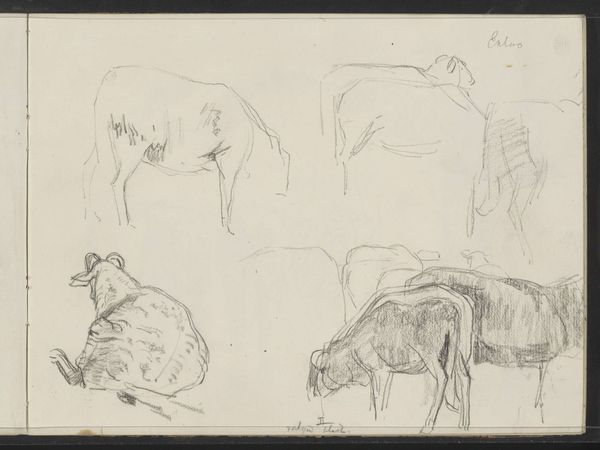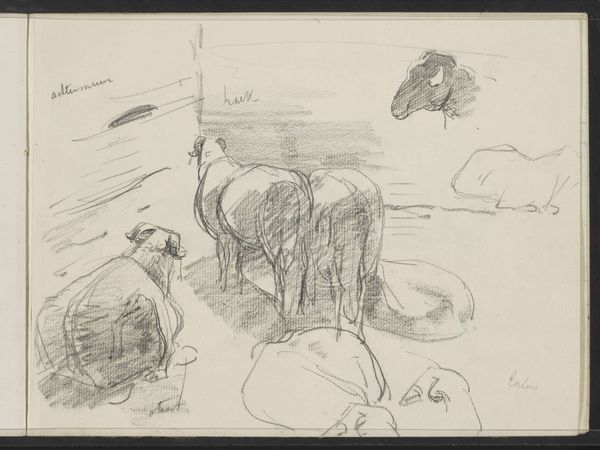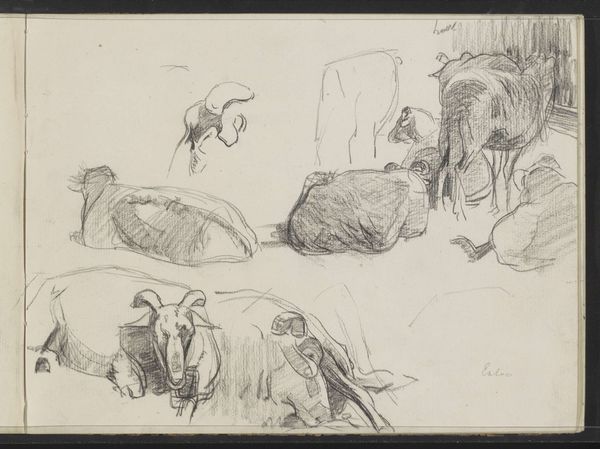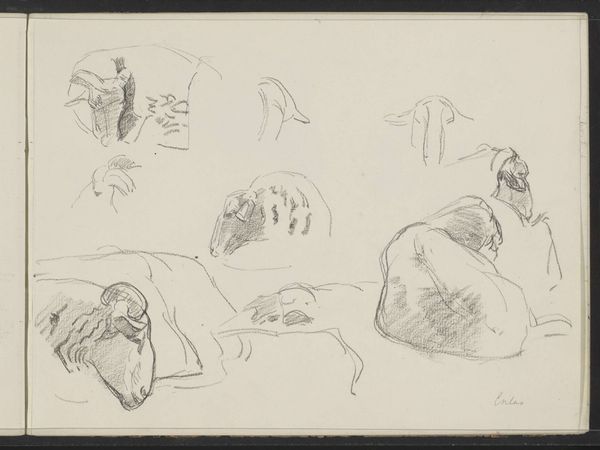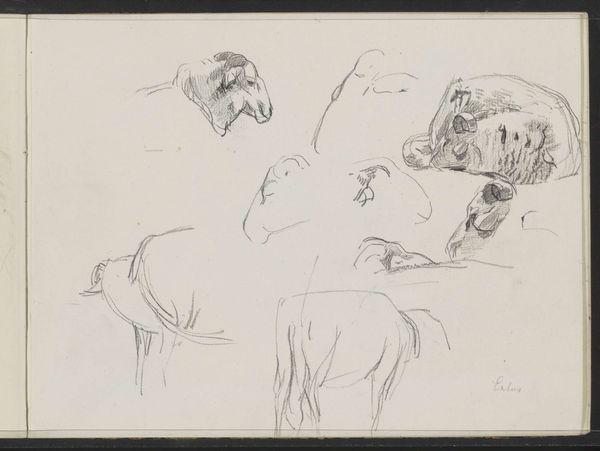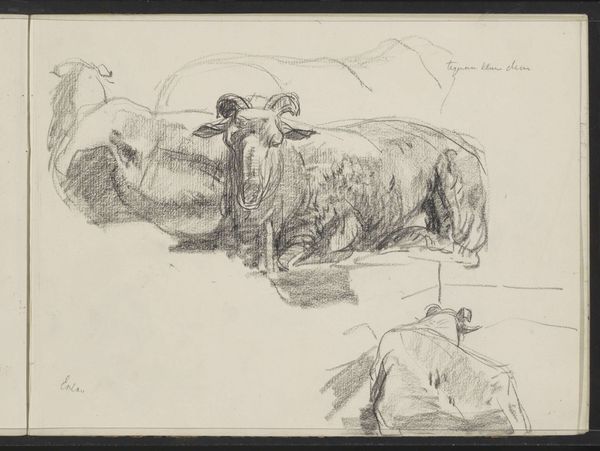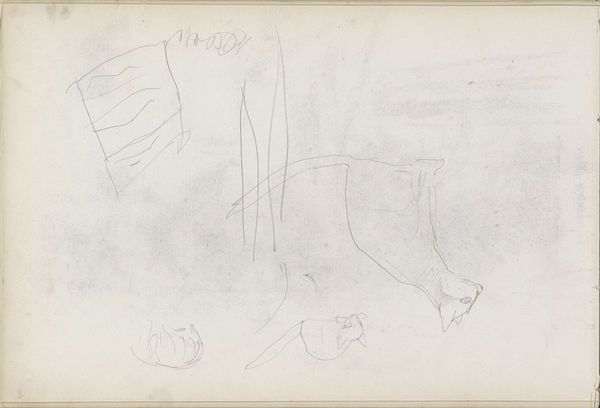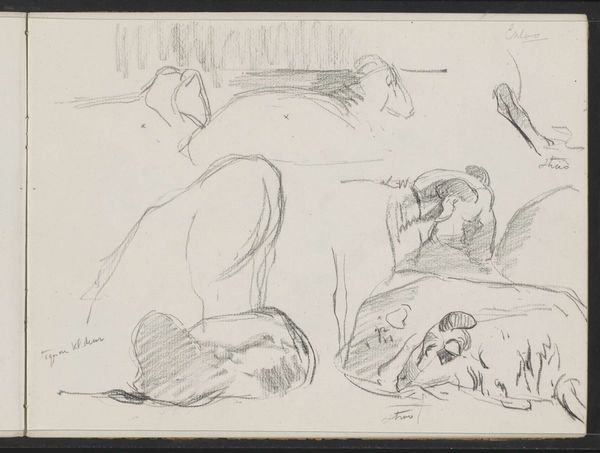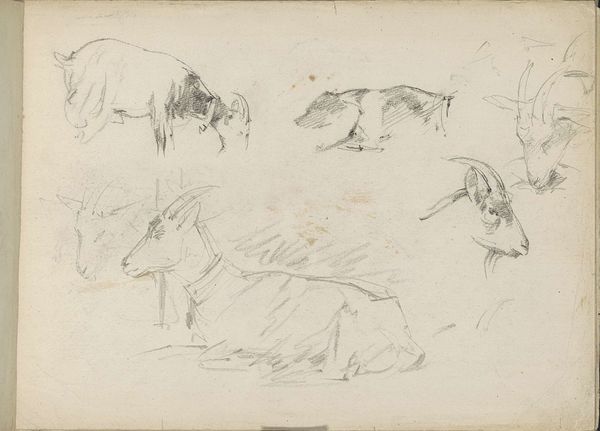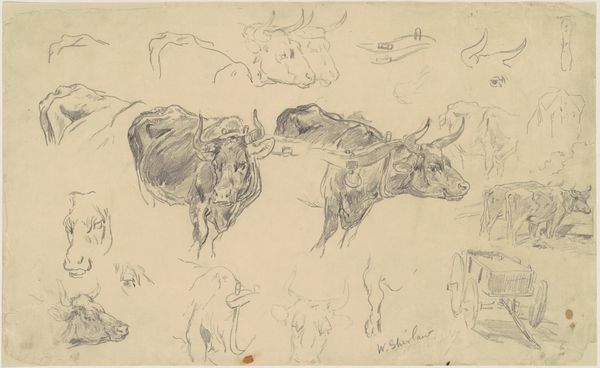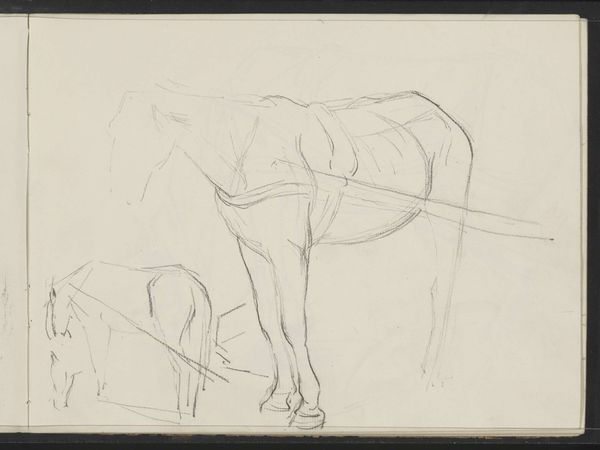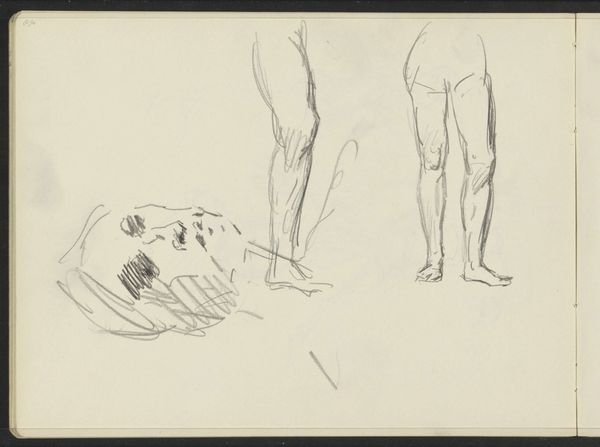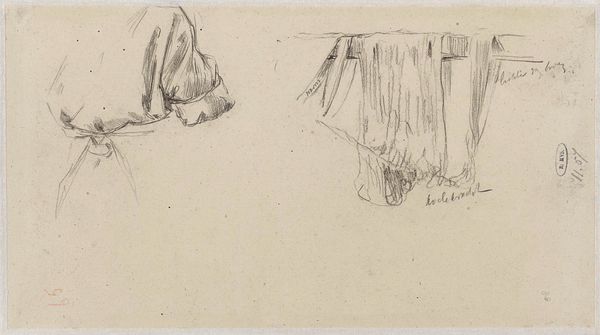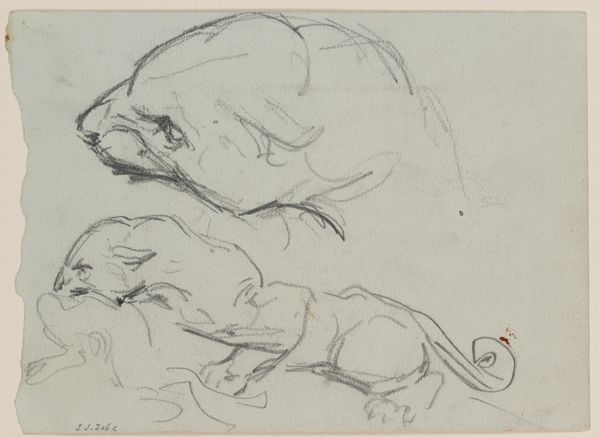
drawing, dry-media, pencil
#
drawing
#
quirky sketch
#
animal
#
pen sketch
#
sketch book
#
landscape
#
figuration
#
dry-media
#
personal sketchbook
#
sketchwork
#
ink drawing experimentation
#
pen-ink sketch
#
pencil
#
sketchbook drawing
#
storyboard and sketchbook work
#
sketchbook art
#
realism
Copyright: Rijks Museum: Open Domain
Curator: This drawing by Ferdinand Oldewelt, titled "Studieblad met schapen te Exloo", which translates to "Study Sheet with Sheep in Exloo," dates from approximately 1904 to 1912. It's a sketch, likely from a personal sketchbook. What strikes you first about it? Editor: Well, there's an immediate sense of quiet observation. The muted palette and sketched lines impart this unassuming feeling of an artist capturing a transient moment, like sneaking glances. Curator: The artist was deeply entrenched in the Hague School tradition, you can notice that focus on rural life, the use of subdued tones… What you call 'quiet observation', I see reflected in how artists of this school saw the world and then represented the world. Editor: Exactly. Looking closer, I am also fascinated by the social implications, a conscious focus on agrarian realities. A choice, I presume, meant to acknowledge and dignify laborers that powered society, in a country side that, for its inhabitants, became synonymous of precarity. Curator: Precisely. This focus elevated everyday life and landscapes into significant artistic subject matter, thereby subtly advocating for recognition and social consideration for those often marginalized within rapidly industrializing societies. Editor: And there is something vulnerable and tender, even, in the way he renders these creatures. Notice how he focuses on the sheep's backsides! Almost comically. The composition becomes an exercise in the absurd that deflates romantic visions about rural life. Curator: A fascinating interpretation, that also exposes the political role of art. Considering the prevailing artistic conventions of the time, these compositions showcasing working animals undeniably resonate with contemporary societal discussions. The art market also played its part... Editor: Definitely. Today the work seems to call into question assumptions of value, whether ascribed to labor, art, or any form of existence. I keep feeling as though it challenges viewers to actively grapple with the intersections of aesthetics, power, and social consciousness. Curator: Looking at Oldewelt's broader oeuvre, it reveals a career navigating artistic integrity and market demands—reflecting the evolving dynamics between artistic expression, social representation, and economic realities. Editor: And perhaps we can read today this “Study Sheet with Sheep in Exloo” as an unpretentious testament to the intrinsic value of that very common life, and of our social responsibility in understanding its significance.
Comments
No comments
Be the first to comment and join the conversation on the ultimate creative platform.
